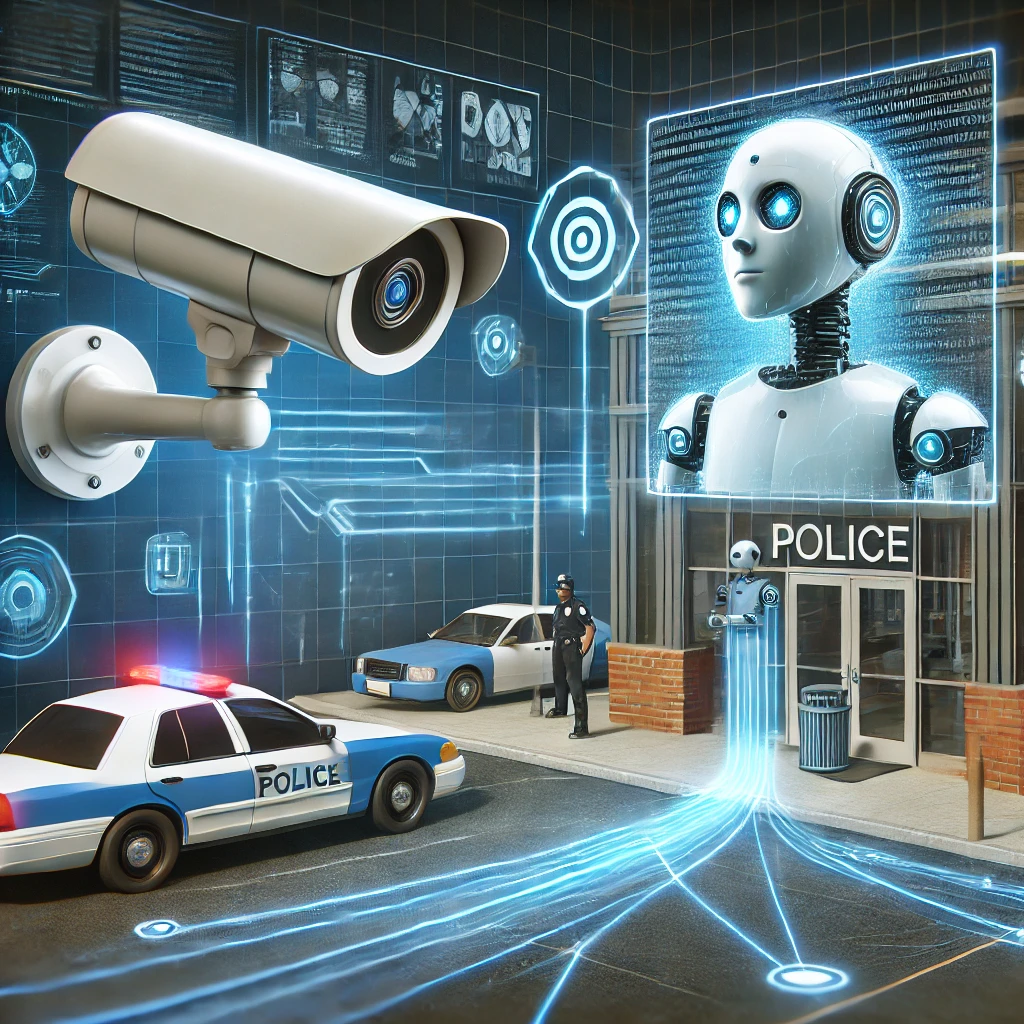In the rapidly evolving landscape of artificial intelligence, one of the most intriguing and controversial questions is: Can AI report you to the police? As we stand in 2024, advancements in AI technology have made it possible for machines to perform tasks that once required human intervention. This includes monitoring and analyzing behavior, which raises significant ethical and legal questions. In this article, we will explore the capabilities of AI in law enforcement, the potential benefits and risks, and the implications for our society.
The Role of AI in Law Enforcement
AI has become an integral part of modern law enforcement, enhancing the ability of agencies to predict, prevent, and respond to crime. AI technologies, such as facial recognition, predictive policing, and surveillance systems, have the potential to transform how law enforcement operates.
- Facial Recognition: AI-driven facial recognition systems can identify suspects in real-time by comparing live footage to databases of known individuals. This technology is used in airports, public spaces, and major events to enhance security and identify wanted individuals.
- Predictive Policing: AI algorithms analyze historical crime data to predict where crimes are likely to occur. This allows law enforcement agencies to allocate resources more effectively and prevent crimes before they happen.
- Surveillance Systems: AI-enhanced surveillance systems can monitor vast amounts of video footage, detecting unusual behavior or identifying specific individuals. This can help in tracking suspects or responding to incidents more efficiently.
Benefits of AI in Law Enforcement
The integration of AI in law enforcement offers several potential benefits, including improved efficiency, accuracy, and safety.
- Efficiency: AI systems can process and analyze data at a speed and scale that is beyond human capabilities. This allows law enforcement to respond to incidents more quickly and make better-informed decisions.
- Accuracy: AI technologies can reduce human error in identifying suspects and predicting crime patterns. This leads to more accurate investigations and fewer wrongful arrests.
- Safety: By automating surveillance and monitoring tasks, AI can reduce the need for human officers to be in potentially dangerous situations, enhancing their safety.
Risks and Ethical Concerns
Despite the potential benefits, the use of AI in law enforcement raises significant ethical and legal concerns that must be addressed.
- Privacy: The widespread use of surveillance systems and facial recognition technology raises concerns about the erosion of privacy. Individuals may feel constantly monitored, leading to a chilling effect on free expression and behavior.
- Bias and Discrimination: AI systems can perpetuate existing biases in data, leading to discriminatory practices. For example, predictive policing algorithms may disproportionately target minority communities based on biased historical data.
- Lack of Accountability: The use of AI in decision-making can lead to a lack of transparency and accountability. It may be difficult to understand how an AI system reached a particular decision, making it challenging to hold it accountable for errors or biases.
Can AI Actually Report You to the Police?
The question of whether AI can report you to the police is complex and multifaceted. In theory, AI systems can identify suspicious behavior, flag potential threats, and alert authorities. However, the decision to take action typically involves a human officer reviewing the AI-generated data.
- Automated Reporting: Some AI systems are designed to automatically alert law enforcement when certain conditions are met, such as detecting a known fugitive through facial recognition. These systems can provide real-time alerts, enabling quicker responses.
- Human Oversight: While AI can assist in identifying potential threats, the final decision to take action usually rests with human officers. This ensures that the context and nuances of a situation are considered before any enforcement actions are taken.
- Legal and Ethical Frameworks: The deployment of AI in law enforcement is governed by legal and ethical frameworks that vary by jurisdiction. These frameworks aim to balance the benefits of AI with the protection of individual rights and freedoms.
Conclusion
In 2024, the integration of AI into law enforcement continues to evolve, bringing both opportunities and challenges. While AI has the potential to enhance the efficiency and effectiveness of law enforcement, it also raises important ethical and legal questions. The possibility of AI reporting individuals to the police is not purely theoretical; it is a reality that requires careful consideration and regulation.
At aiforthewise.com, we strive to provide you with the latest insights and practical advice on AI technology. By understanding the capabilities and limitations of AI in law enforcement, you can better navigate the complex landscape of modern technology. Let AI Raise Your Wisdom. Remember to subscribe to our newsletter for more insights and practical tips on harnessing the power of AI in your daily life.
